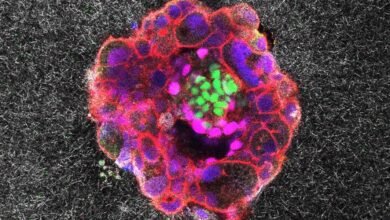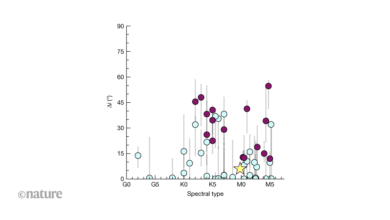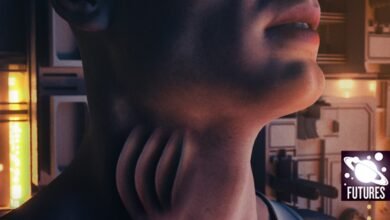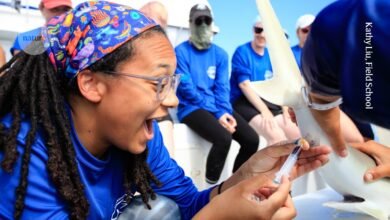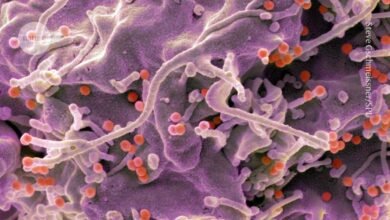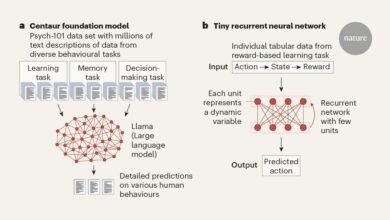
DeMille, D. Quantum computation with trapped polar molecules. Phys. Rev. Lett. 88, 067901 (2002).
Yelin, S. F., Kirby, K. & Côté, R. Schemes for robust quantum computation with polar molecules. Phys. Rev. A 74, 050301 (2006).
Zhu, J., Kais, S., Wei, Q., Herschbach, D. & Friedrich, B. Implementation of quantum logic gates using polar molecules in pendular states. J. Chem. Phys. 138, 024104 (2013).
Ni, K.-K., Rosenband, T. & Grimes, D. D. Dipolar exchange quantum logic gate with polar molecules. Chem. Sci. 9, 6830–6838 (2018).
Hudson, E. R. & Campbell, W. C. Dipolar quantum logic for freely rotating trapped molecular ions. Phys. Rev. A 98, 040302 (2018).
Park, J. W., Yan, Z. Z., Loh, H., Will, S. A. & Zwierlein, M. W. Second-scale nuclear spin coherence time of ultracold 23Na40K molecules. Science 357, 372–375 (2017).
Gregory, P. D., Blackmore, J. A., Bromley, S. L., Hutson, J. M. & Cornish, S. L. Robust storage qubits in ultracold polar molecules. Nat. Phys. 17, 1149–1153 (2021).
Lin, J., He, J., Jin, M., Chen, G. & Wang, D. Seconds-scale coherence on nuclear spin transitions of ultracold polar molecules in 3d optical lattices. Phys. Rev. Lett. 128, 223201 (2022).
Burchesky, S. et al. Rotational coherence times of polar molecules in optical tweezers. Phys. Rev. Lett. 127, 123202 (2021).
Christakis, L. et al. Probing site-resolved correlations in a spin system of ultracold molecules. Nature 614, 64–69 (2023).
Park, A. J. et al. Extended rotational coherence of polar molecules in an elliptically polarized trap. Phys. Rev. Lett. 131, 183401 (2023).
Holland, C. M., Lu, Y. & Cheuk, L. W. On-demand entanglement of molecules in a reconfigurable optical tweezer array. Science 382, 1143–1147 (2023).
Bao, Y. et al. Dipolar spin-exchange and entanglement between molecules in an optical tweezer array. Science 382, 1138–1143 (2023).
Lloyd, S. A potentially realizable quantum computer. Science 261, 1569–1571 (1993).
Gershenfeld, N. A. & Chuang, I. L. Bulk spin-resonance quantum computation. Science 275, 350–356 (1997).
Jones, J. A. & Mosca, M. Implementation of a quantum algorithm on a nuclear magnetic resonance quantum computer. J. Chem. Phys. 109, 1648–1653 (1998).
Vandersypen, L. M. K. et al. Experimental realization of Shor’s quantum factoring algorithm using nuclear magnetic resonance. Nature 414, 883–887 (2001).
Menicucci, N. C. & Caves, C. M. Local realistic model for the dynamics of bulk-ensemble NMR information processing. Phys. Rev. Lett. 88, 167901 (2002).
Monroe, C. & Kim, J. Scaling the ion trap quantum processor. Science 339, 1164–1169 (2013).
Bluvstein, D. et al. Logical quantum processor based on reconfigurable atom arrays. Nature 626, 58–65 (2024).
Kjaergaard, M. et al. Superconducting qubits: current state of play. Annu. Rev. Condens. Matter Phys. 11, 369–395 (2020).
ACME Collaboration Improved limit on the electric dipole moment of the electron. Nature 562, 355–360 (2018).
Roussy, T. S. et al. An improved bound on the electron’s electric dipole moment. Science 381, 46–50 (2023).
Micheli, A., Brennen, G. & Zoller, P. A toolbox for lattice-spin models with polar molecules. Nat. Phys. 2, 341–347 (2006).
Gorshkov, A. V. et al. Tunable superfluidity and quantum magnetism with ultracold polar molecules. Phys. Rev. Lett. 107, 115301 (2011).
Albert, V. V., Covey, J. P. & Preskill, J. Robust encoding of a qubit in a molecule. Phys. Rev. X 10, 031050 (2020).
Sawant, R. et al. Ultracold polar molecules as qudits. New J. Phys. 22, 013027 (2020).
Ni, K.-K. et al. A high phase-space-density gas of polar molecules. Science 322, 231–235 (2008).
Danzl, J. G. et al. Quantum gas of deeply bound ground state molecules. Science 321, 1062–1066 (2008).
Lang, F., Winkler, K., Strauss, C., Grimm, R. & Hecker Denschlag, J. Ultracold triplet molecules in the rovibrational ground state. Phys. Rev. Lett. 101, 133005 (2008).
Anderegg, L. et al. An optical tweezer array of ultracold molecules. Science 365, 1156–1158 (2019).
Cairncross, W. B. et al. Assembly of a rovibrational ground state molecule in an optical tweezer. Phys. Rev. Lett. 126, 123402 (2021).
Rosenberg, J. S., Christakis, L., Guardado-Sanchez, E., Yan, Z. Z. & Bakr, W. S. Observation of the Hanbury Brown–Twiss effect with ultracold molecules. Nat. Phys. 18, 1062–1066 (2022).
Ruttley, D. K. et al. Formation of ultracold molecules by merging optical tweezers. Phys. Rev. Lett. 130, 223401 (2023).
Zhang, J. T. et al. An optical tweezer array of ground-state polar molecules. Quantum Sci. Technol. 7, 035006 (2022).
Rosenband, T., Grimes, D. D. & Ni, K.-K. Elliptical polarization for molecular stark shift compensation in deep optical traps. Opt. Express 26, 19821–19825 (2018).
Picard, L. R. B., Patenotte, G. E., Park, A. J., Gebretsadkan, S. F. & Ni, K.-K. Site-selective preparation and multistate readout of molecules in optical tweezers. PRX Quantum 5, 020344 (2024).
Aymar, M. & Dulieu, O. Calculation of accurate permanent dipole moments of the lowest 1,3Σ+ states of heteronuclear alkali dimers using extended basis sets. J. Chem. Phys. 122, 204302 (2005).
Yan, B. et al. Observation of dipolar spin-exchange interactions with lattice-confined polar molecules. Nature 501, 521–525 (2013).
Wall, M. L., Hazzard, K. R. A. & Rey, A. M. in From Atomic to Mesoscale: The Role of Quantum Coherence in Systems of Various Complexities (eds Novikova, I. & Malinovskaya, S. A.) 3–38 (World Scientific, 2015).
Souza, A. M., Álvarez, G. A. & Suter, D. Robust dynamical decoupling. Philos. Trans. R. Soc. A Math. Phys. Eng. Sci. 370, 4748–4769 (2012).
Chomaz, L. et al. Dipolar physics: a review of experiments with magnetic quantum gases. Rep. Prog. Phys. 86, 026401 (2023).
Gilmore, K. A. et al. Quantum-enhanced sensing of displacements and electric fields with two-dimensional trapped-ion crystals. Science 373, 673–678 (2021).
Koller, A. P., Mundinger, J., Wall, M. L. & Rey, A. M. Demagnetization dynamics of noninteracting trapped fermions. Phys. Rev. A 92, 033608 (2015).
Chew, Y. T. et al. Ultra-precise holographic optical tweezers array. Preprint at https://arxiv.org/abs/2407.20699 (2024).
Chew, Y. et al. Ultrafast energy exchange between two single Rydberg atoms on a nanosecond timescale. Nat. Photon. 16, 724–729 (2022).
Aldegunde, J. & Hutson, J. M. Hyperfine structure of alkali-metal diatomic molecules. Phys. Rev. A 96, 042506 (2017).
Hofmann, H. F. Complementary classical fidelities as an efficient criterion for the evaluation of experimentally realized quantum operations. Phys. Rev. Lett. 94, 160504 (2005).
Ma, S. et al. High-fidelity gates and mid-circuit erasure conversion in an atomic qubit. Nature 622, 279–284 (2023).
Scholl, P. et al. Erasure conversion in a high-fidelity Rydberg quantum simulator. Nature 622, 273–278 (2023).
Sundar, B., Gadway, B. & Hazzard, K. R. A. Synthetic dimensions in ultracold polar molecules. Sci. Rep. 8, 3422 (2018).
Homeier, L. et al. Antiferromagnetic bosonic t–J models and their quantum simulation in tweezer arrays. Phys. Rev. Lett. 132, 230401 (2024).
Kuznetsova, E., Rittenhouse, S. T., Sadeghpour, H. R. & Yelin, S. F. Rydberg-atom-mediated nondestructive readout of collective rotational states in polar-molecule arrays. Phys. Rev. A 94, 032325 (2016).
Wang, K., Williams, C. P., Picard, L. R. B., Yao, N. Y. & Ni, K.-K. Enriching the quantum toolbox of ultracold molecules with Rydberg atoms. PRX Quantum 3, 030339 (2022).
Guttridge, A. et al. Observation of Rydberg blockade due to the charge-dipole interaction between an atom and a polar molecule. Phys. Rev. Lett. 131, 013401 (2023).
Guardado-Sanchez, E. et al. Quench dynamics of a Fermi gas with strong nonlocal interactions. Phys. Rev. X 11, 021036 (2021).
Carroll, A. N. et al. Observation of generalized t-J spin dynamics with tunable dipolar interactions. Preprint at arxiv.org/abs/2404.18916 (2024).
Shaw, A. L. et al. Erasure-cooling, control, and hyper-entanglement of motion in optical tweezers. Preprint at arxiv.org/abs/2311.15580 (2023).
Vexiau, R. et al. Dynamic dipole polarizabilities of heteronuclear alkali dimers: optical response, trapping and control of ultracold molecules. Int. Rev. Phys. Chem. 36, 709–750 (2017).
Zhang, J. T. et al. Forming a single molecule by magnetoassociation in an optical tweezer. Phys. Rev. Lett. 124, 253401 (2020).
Picard, L. R. B. et al. High resolution photoassociation spectroscopy of the excited \({c}^{3}{\Sigma }_{1}^{+}\) potential of 23Na133Cs. Phys. Rev. Res. 5, 023149 (2023).
Boradjiev, I. I. & Vitanov, N. V. Control of qubits by shaped pulses of finite duration. Phys. Rev. A 88, 013402 (2013).
Clopper, C. J. & Pearson, E. S. The use of confidence or fiducial limits illustrated in the case of the binomial. Biometrika 26, 404–413 (1934).
Sackett, C. A. et al. Experimental entanglement of four particles. Nature 404, 256–259 (2000).
Krämer, S., Plankensteiner, D., Ostermann, L. & Ritsch, H. QuantumOptics.jl: a Julia framework for simulating open quantum systems. Comput. Phys. Commun. 227, 109–116 (2018).
Singh, R. K., Senthilkumaran, P. & Singh, K. Tight focusing of vortex beams in presence of primary astigmatism. J. Opt. Soc. Am. A 26, 576–588 (2009).
Colbert, D. T. & Miller, W. H. A novel discrete variable representation for quantum mechanical reactive scattering via the S-matrix Kohn method. J. Chem. Phys. 96, 1982–1991 (1992).
Bezanson, J., Edelman, A., Karpinski, S. & Shah, V. B. Julia: a fresh approach to numerical computing. SIAM Rev. 59, 65–98 (2017).
Haegeman, J. Krylovkit (v0.8.1). Zenodo https://doi.org/10.5281/zenodo.12122079 (2024).
Efron, B. & Tibshirani, R. J. An Introduction to the Bootstrap (Chapman and Hall, 1994).
Picard, L. R. et al. Experimental data and simulation code for Entanglement and iSWAP gate between molecular qubits. Harvard Dataverse https://doi.org/10.7910/DVN/3UEBEV (2024).
Holland, C. M., Lu, Y., Li, S. J., Welsh, C. L. & Cheuk, L. W. Demonstration of erasure conversion in a molecular tweezer array. Preprint at https://arxiv.org/abs/2406.02391 (2024).
Source link

